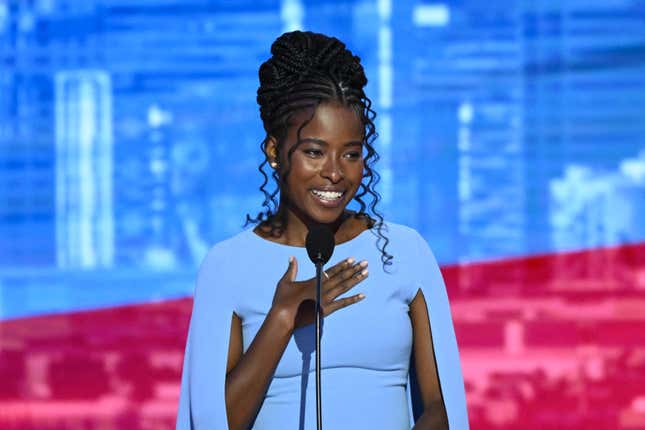
When Amanda Gorman read her poem, “The Hill We Climb,” at former President Joe Biden’s inauguration, she became the youngest poet to deliver a poem at a presidential inauguration. Although the 26-year-old Los Angeles native says she felt an immense sense of pride at being included in such an important moment in American history, she had no idea her work would resonate the way it did. And in a recent interview with “Meet The Press,” Gorman opened up to moderator Kristen Welker about how she felt when she learned that there was an active campaign to remove “The Hill We Climb” from schools around the country.
Gorman told Welker she wrote the inaugural poem on the evening of January 6 after watching the violent attack at the Capitol Building in Washington, D.C. unfold on television.
“It felt like something I needed to read in the moment,” she said. “It was important for me to just process my own emotions and thoughts as an American watching that violence against our democracy.”
Gorman’s main message in the poem is one of unity and resilience in the face of division. She writes:
But in 2023, a parent in a Miami-area school complained “The Hill We Climb” contained “indirect hate speech” and that it would “cause confusion and indoctrinate children.” As a result, access to the poem is restricted to middle school students in the district. Gorman told Welker that learning the poem she wrote to inspire hope in the country was banned felt like a “gut punch.”
“I understood that book bans had been happening, but I think this hit me so incredibly hard because – not just that it was something that I had written, which was besides the point – but that it was a moment in history,” she said. “If a child wanted to hear words that were spoekn at a presidential inauguration for their country, it had kind of been softly restricted in that way.”
In the interview, Gorman cautioned parents to be “awake to what is happening on a local level” in terms of book bans – particularly because they will disproportionately impact children from middle and lower-class families who aren’t otherwise able to afford to buy every book they need or want to read.
“These books that are being banned predominately feature authors and characters of color authors and characters of the LGBTQ community, and so we’re seeing entire identities erased from bookshelves,” she said. “And when a child can’t see themselves represented in a story, they can’t dream of their own life to actualize their own hopes.”

